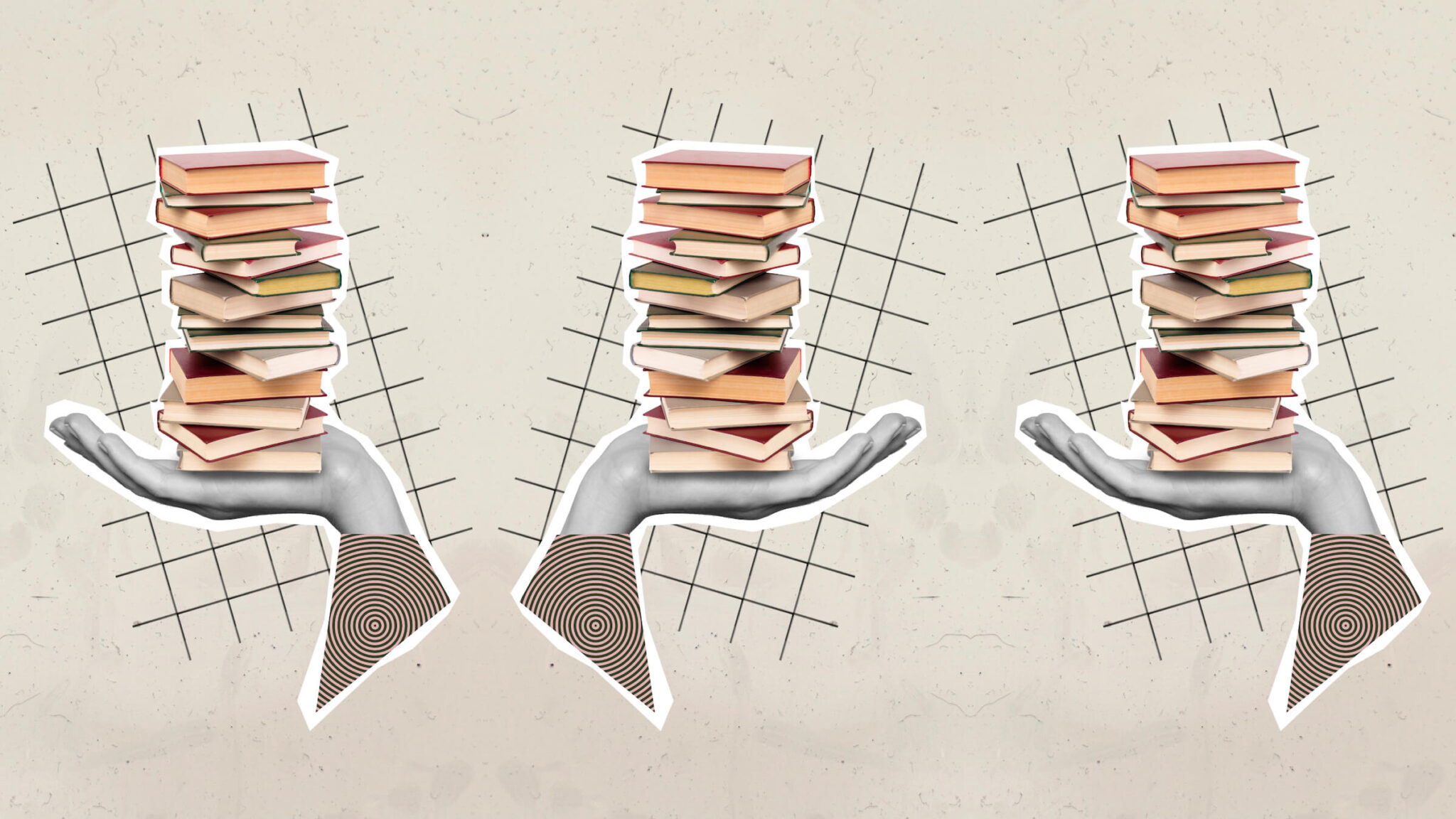
Written by Jane Hammons
Grady Doak sat in the back of his truck. Glum, he stroked the butt of his .300 Winchester Magnum while he waited for his wife Lucy to return from the fertility clinic in Las Cruces where she went frequently to see if her progesterone levels were too high or too low, or to check for abnormalities in her cervix—any explanation would do. If she couldn’t have a baby, she wanted lots of information. The last time he drove over to the clinic with her, the doc said she had a problem ferning. Ferns. Something to do with her goo. He wasn’t shooting blanks. Grady fingered the smooth metallic trigger.
Back in August, he’d gotten the Winchester and the depredation license and was all set for the military escort out into the White Sands Missile Range to hunt oryx. But Osama Bin Laden blew that. After 9/11 no more civilian activities on military bases. It wasn’t that he was dying to kill an oryx. He’d been looking forward to the camouflage and the Humvees and some buzzcut barking orders at him. A kind of no risk Desert Storm. He’d never developed a taste for oryx steak, and Lucy went Hindu at the thought of eating one of her sacred cows.
Besides tearing up fields and damaging property, fuck, thrive and reproduce was what oryx did. The depredation hunt on National Park land inside White Sands Missile Range, would have been a public service. There wasn’t a rancher or farmer for miles around who wanted the oryx anything but dead. They could be hunted legally once they left the protective boundary of the Missile Range. But inside the Range, the population went unchecked and spilled out of the perimeter. Grady fixed his site on a jackrabbit and obliterated it.
He didn’t want any more children. He already had two. One he had never met. In 1967 when he was 17, he got Josie Luna pregnant. She disappeared for a while like girls used to, came home without a baby, and went right back to school until she died a few days shy of high school graduation. She’d gone with Grady and his friends to Juarez where they bought fifths of mezcal con gusano, drove back across the border, ate their worms and headed out to the gypsum dunes of White Sands with freshly harvested peyote buttons. Drunk and high like the rest of them, Josie Luna wandered off and choked to death on her puked up buttons.
Grady was all Josie’s little baby was going to find if it ever went looking for a biological parent. Until he met Lucy, he’d never thought that way: biological, donor, surrogate. His 30-year-old daughter from his first marriage lived in Denver where she had moved with her mother shortly after she was born. She’d been conceived during a wild night of partying with a girl he’d liked in college. Grady’s father made sure he did the right thing. They married and then divorced shortly after the baby was born. He had paid child support and helped out with tuition and other expenses, but didn’t get involved, which seemed to suit everyone. Married five times, two children he didn’t know, Grady thought it was pretty clear that he was neither husband nor father material. But shortly after they married, Lucy started keeping a log with neatly printed headings—body temperature, position during coitus, date of ovulation. She reviewed it with him frequently.
Grady didn’t want to be home when Lucy returned with lab reports and a new set of instructions. She should have just bought some sperm from a lab instead of looking all over the Internet for a man to marry.
Lucy vowed to keep her secret tied up in the embryonic knot that had just recently implanted itself in her uterus even though she was so happy she could pop. The doctor warned her against telling too many people about the pregnancy. Pregnancy. Embryo. Not baby. She was almost 40. Her odds were low.
She left Las Cruces and turned onto the highway, humming what she remembered of a long-ago piano lesson. Supposedly Mozart made babies smarter. Never too soon to start, she thought, but stopped as soon she came to a rise and saw a long line of cars parked along on Highway 70. Roadblock. She’d checked the White Sands website to see if there were any missile firings scheduled, and nothing had been posted. But she’d lived near the Range for almost a year and knew that the military conducted unscheduled tests, stopping traffic whenever it wanted.
Ordinarily, she’d sit on the highway along with the baffled tourists and pissed off truck drivers and wait for permission to proceed. But eager to share her news with Grady, she pulled to the shoulder of the highway and opened the glove box to look for the messy little sketch of back roads that Grady had made for just such an occasion. She wished now that she’d taken his truck when he offered it, guilty for making her go to the doctor alone. The back roads were rough and deeply rutted. Lucy worried about getting a flat or a rock cracking her windshield. Grady worried that her little Honda would be run off the road by an oryx.
Lucy inspected the map closely. She was in far more danger of getting lost than she was of being attacked by an oryx. After months of driving the back roads she was still disoriented by the identical flat stretches of fenced off land dotted with ranch houses, barns and corrals. Her cell phone useless once she left the highway, she’d pull into the driveway of someone Grady had known all his life, walk shyly up to the door, explain who she was and ask to use the phone. Embarrassed, Grady would come fetch her, apologizing for the intrusion. As he barreled down the dirt road in front of her, she’d eat his dust all the way home. Her inability to get her bearings made Grady question her intelligence, her knowledge of art and languages notwithstanding. When they first met, he was impressed by the fact that she was a Professor of Art History and Classics at a small college in Santa Fe. And he’d enjoyed her brief lectures on the paintings they viewed in Las Vegas where they went to get married. Lately Grady enjoyed very little. But she’d got what she wanted. Married and pregnant. She’d beat the odds that some stupid magazine article had laid out for women in their 30s a few years back, saying her chances of getting killed by a terrorist were higher.
Lucy drove along the shoulder of the highway until she found the mile marker that designated her turnoff and slowed to 15 mph. Bored by the landscape, she imagined photos in her future family album: a toddler playing in the backyard, a pitcher of lemonade and plate of homemade biscochitos sitting on the white wicker lawn furniture she had yet to purchase; the child and Grady riding horseback together as the sun set over the Organ Mountains, a dusty layer of snow turning pink and gold in the fading light. Before she could sketch herself into a scene—bathing a gurgling infant or rocking it to sleep—a large oryx darted into the middle of the road.
Its brown hide splashed with black and white markings provided such perfect camouflage against the backdrop of sandy dunes and dry desert brush that she lost her focus. Slamming on her brakes, she overcorrected, causing the car to spin a full circle in the dirt road. It jolted to a stop, the front wheels in a bar ditch. Lucy gasped, pain stabbing her shoulders and neck. The seatbelt held her uncomfortably in place. She sat in a daze while the oryx nosed about the vehicle. She knew her chances of driving out of the wide shallow ditch designed to carry the run-off during flash floods were next to none. Still she gunned the engine, causing her tires to spin, digging deeper into the sandy wash. When she heard the sizzle and drip of something beneath the hood, her mind filled with movie screen explosions. She laid on the horn, and the oryx backed away. She unfastened her seat belt and let the shoulder strap slide across her chest. Grabbing her canvas bag from the passenger seat, she crept slowly out of the car, hoping the oryx would keep its distance.
Even though she knew better, she tried her cell phone. Nothing. Her heart raced, and despite the heat, she shivered. She practiced LaMaze to get her breath under control. Once she had composed herself, she checked her bag to make sure it contained the water, sunscreen and visor that she always carried in the car. Luckily she also had a flannel jacket, a newspaper and a box of crackers stuffed into the bottom of it. She put her bag over her shoulder and surveyed the terrain, locating a spot of shade under one of several scrawny trees. Twisted, tortured but still living, the Rio Grande cottonwoods, many miles from the Rio Grande, sent roots 50 to 60 feet into the desert, managing to find enough water to sustain themselves. She learned this kind of thing from Grady who knew everything about where he lived. She admired that. She made a mental note to start a list when she got home. Things I Admire.
The truth was that she could make a much longer list of the things that annoyed her, Grady’s moody bursts of anger at the top of it. He had kept this characteristic under wraps during their weekend get-to-know-you trysts. In his e-mail and telephone conversations, he was charming and humorous. His jokes tended to be corny and he relied too often on puns, but his was a gentle humor not often found among her academic colleagues, who tended toward irony. When they’d traveled to San Francisco, Denver, and New Orleans, Grady was gracious and surprisingly adept at ordering from gourmet menus. He was wealthy and well traveled, as a result of his oil well inheritance from his father. He didn’t have to live out on the little ranch where his mother had grown up and where his grandmother had raised him. He chose to. Initially Lucy had found this endearing, but as she thought more about the fact that Grady’s mother had committed suicide in that house, she decided they would have to move once the baby was born.
She was well aware that her family and colleagues thought her marriage to Grady was foolish and delusional, and that his friends thought she was just one more gold-digger, unaware, perhaps, of the pre-nup more than one woman before her had signed. She’d been a single woman for her entire life and if she had to learn how to be a single mother at age 40, she would. Foolish maybe: delusional, no.
She walked toward the narrow slice of shade offered by the desiccated tree, and from a distance, assessed the damage to her car. Grady would be furious about the oryx. She’d lie and tell him that she nodded off. Pregnancy makes you sleepy. She whispered the explanation to herself. Sharp pain jabbed at her lower back. Whiplash, she thought, rolling her shoulders.
An oryx appeared from behind a cactus-covered dune. The oryx from the road joined it. As the two animals approached each other, Lucy watched what she knew to be the female ritual of refusal, the first stage of the mating whirl around. Head lowered, the female butted the bull, the clashing of their long horns a frightening sound. Lucy concentrated on the animals as if she were watching an episode of Nova and tried to ignore what she feared was the embryo detaching itself from her uterus. She screamed and doubled over as thick clots mapped a bloody journey down her leg. When the bleeding stopped, the cramping subsided, but she couldn’t keep from peeing her pants. Feeling faint, she slid down into the crotch of the cottonwood tree.
Close by the female oryx signaled her appeasement. She prepared to be mounted by lowering her head and urinating in a loud steady stream. The bull, his erection guiding him toward her, sniffed the urine. Confirming that the female was in heat, he mounted and entered her swiftly. Thrusting vigorously, his muscular hindquarters tensed with pleasure and the drive to inseminate. Satisfied he snorted loudly when he was done. The female oryx pulled away and stood for a moment, her eyes on Lucy. Slowly, she approached the cottonwood where Lucy huddled in pain. Horrified, Lucy watched as the bull oryx, his erection receding but still unsheathed followed her. The female oryx lowered her head and poked her muzzle into the mixture of blood and urine at Lucy’s side. Lucy stifled a scream as the female oryx’s long sharp horns protruded dangerously close. Curious the bull approached, but the female planted herself firmly in front of Lucy and shook her horns at the bull. His penis dangling, the bull ambled away over the dune and off into the horizon.
When the phone rang for the second time, Grady climbed out of the back of the truck to answer it. He assumed Lucy was lost again. He had ignored the first call. But this time he yanked open the aluminum screen door, and stalked into the kitchen, staring resentfully at the pearly pink answering machine Lucy had brought along with her. Its red lights blinked, signaling that both he and Lucy had messages. Unfamiliar with the machine that Lucy had set up so that they each had their own private voicemail boxes Grady seldom messed with it. When he had lived alone, people either caught him at home or called back. He used e-mail; he had a web site for his business—Agua Caliente Oil and Gas—he even owned a cell phone, which was mostly useless to him living where he did. But he’d never owned an answering machine. He didn’t know which button to push. He put the Winchester down and guessed.
After he listened to the message from Lucy’s doctor, rescheduling next week’s follow-up appointment, he sat down hard in the creaky rocking chair that had been his grandmother’s. She’d rocked him to sleep in it for years, his own mother unable to wrap him in a warm embrace. Gram had died years ago; his mother had killed herself when he was 10. Lucy’s family all lived back East. Lucy would need help. He wasn’t going to be one of those gray-haired stroller-pushing miserable-looking SOBs he watched trailing after some young thing in the mall over in El Paso. He’d be goddamned if he was going to dangle a baby around his neck or drape a diaper bag over his shoulder.
Shit. He picked up the rifle went back outside and opened up the garage. From a rack by the door, he grabbed the Winchester’s canvas carrying case, shoved the rifle into it, and slung it over his back. He uncovered his Harley, hopped on, inserted the key into the ignition, and revved the engine. He had told Lucy he would be home when she returned from the clinic. But he was going to ride over to Fort Stanton Cave instead.
When he was a boy, the Cave had been closed to the public, but his high school football coach, Dub Benson, had once taken the entire football team down there. Coach Benson was also the Earth Science teacher and wanted to show them that he knew something about science since he pretty much stunk at coaching football.
Once they were into the depths of the cave, Coach had gotten lost. They’d spent a lot of time crawling through narrow tunnels across small shards on their bellies while Coach mumbled apologies. Grady split off from the group, though he stayed in range of Coach’s voice. Just when he was certain he’d die in that cave, he saw bright blue crystals glowing like a beacon. He’d seen fluorite crystals in rock shops, but he’d never seen them growing in a cluster. When he called Coach Benson over to show him, Coach crawled up next to him and recited an odd little ditty that Grady had never forgotten.
The Girls Can Flirt And Other Queer Things Can Do
Talc Gypsum Calcite Fluorite Apatite Orthoclase Quartz Topaz Corundum Diamond
Grady roared out on to the narrow dirt road that led to the highway, repeating the order of hardness in rocks and minerals like some kind of mantra.
According to the old-timers, Fort Stanton Cave was where Billy the Kid had kept a canoe and horses at a secret entrance. When Billy was on the run he’d head for the cave and use the river as his means of escape. Exploring the cave on his own, Grady had once found a trickle of water, possibly a tributary of the Pecos River. It didn’t look like it could sustain a canoe. But maybe a hundred years ago it had been deeper. God knows plenty had changed since Pat Garrett shot Billy the Kid. Atomic bombs exploded in the desert. Stories of UFOs and aliens drew nut jobs from all around the world to nearby Roswell. The African oryx ruled the Chihuahua Desert. He let himself believe in a deep river that carried the Kid to safety.
Up ahead he saw a military police car, red and blue lights flashing. He assumed there had been an accident nearby—the Missile Range never closed off this highway. He crossed the road and pulled to a stop next to the car. Straddling his motorcycle, he shifted uncomfortably when he saw the officer was Hector Luna. Grady turned off the ignition and put the kickstand down. He took his helmet off and cradled it in his arm. Hector wasn’t going to let him simply proceed or turn around and ride away. For the past 33 years, every encounter with the brother of Josie Luna involved some kind of interrogation. He didn’t expect today to be any different.
“Headed over to the Cave, Doak? Need a hiding place?”
Though Hector had been in Vietnam when Josie died, he had put together all the pieces of the story. When Josie’s tattered body—picked at by coyotes and vultures—had been found out in the White Sands, Grady took off for the Cave. Eventually, his grandmother had convinced Coach Benson to go in and bring him out. Though plenty of folks thought the kids who abandoned Josie that night ought to be prosecuted for something, nobody ever was. Grady wasn’t hiding from the law. He was hiding from the same temptation his mother gave into when she stuck a pistol in her mouth and blew her head off.
“Just out for a ride, Colonel Luna.” Hector had retired from the military years ago, but still volunteered when called upon. If Hector was in the mood to let Grady call him by his first name, he’d let him know.
“Don’t bother with the news?”
“Osama Bin Laden decide he likes our desert better than his and invade?”
Hector almost smiled. “Not exactly. We’re on the lookout for a cadet from nimmee.” He pronounced the name of the New Mexico Military Institute the way all the locals did. “Slit the throats of three of his fellow cadets. Two confirmed dead.”
“Jesus. When did this happen?”
“Last night, early this morning. Buddy Benson’s one of the dead.”
“Coach’s grandson?”
Hector nodded, his mouth a grim straight line.
“Shit.” Grady ran his hand through his thick black hair. Even though he was fifty, it was only slightly peppered with gray. “Who’s the kid with the knife?”
“Not a knife,” said Hector. “Some kind of surgical instrument the coroner said. Clean cuts like from a scalpel.”
“Scalpel?”
“Yeah. Don’t have a lot of information yet. Just that this kid—John S. Gupta—first year cadet—they think he’s the one that did the killing. Some of the other cadets said he was always bragging he was going to be a doctor like his grandfather. Had some kind of doctor’s kit he prized. Liked to show off the instruments. Nobody can locate him.”
“Gupta.” Grady repeated the name. “His family own motels out on the Interstate?”
“That’s the family. He could be headed over there or across the border. We’ve had checkpoints and roadblocks set up along the interstate and some of these little highways all day long.”
“Motherfucker.” Grady thought of Lucy driving around the back roads alone in her little Honda. “Lucy. My wife. She’s late coming back from Cruces. She’s always getting lost, so I didn’t think much about it.”
“Guess not since you’re headed in the opposite direction. Some things don’t change, do they, Doak?”
Grady accepted Hector’s disgust in silence.
“She’s probably sitting in the roadblock,” Hector said. “They shut down Highway 70. Doing a complete search of every vehicle, letting cars through little at a time.”
“She headed back before noon. No way she’s been sitting on that highway for five hours.”
“Maybe you ought to go have a look unless you just want to leave another girl out in that desert.”
“Hector.” The man’s name was all Grady could say by way of apology. He hadn’t forced Josie to eat peyote or drink mezcal. He hadn’t meant to leave her out in the dunes. His crime was forgetting about her.
“You ever wonder about Josie’s baby?” Hector asked. It was the first time anyone in Josie’s family had spoken to him about the baby.
“Didn’t think I had the right.”
“Smarter than you look.” Hector walked to his car and flipped the visor down. He took out a hand tooled leather wallet, softened from years of being stored between the visor and the ceiling of a patrol car. “This is Roberto Joseph Luna, my nephew. He lives in LA with my older brother and his family. Look familiar?”
Before Hector opened his wallet and flashed a yearbook photo of a young man taken in the mid-80s, Grady imagined the soft round face of Josie Luna, her eyes golden like two amber gems, her timid smile. He gasped when he saw his mother’s angular cheekbones, reddish brown hair and eyes green as malachite staring back at him.
“Funny thing DNA. Roberto knows he comes from somewhere the rest of his family doesn’t. Someday he’s likely to need you.”
“Sorry for him if he ever needs me. But if he does, you know where I am.”
Hector took a clear plastic sleeve out of his wallet. It held a prayer card from the funeral of Josefina Maria Luna. It also held a necklace Grady recognized as his mother’s Baby Add-A-Pearl. When he discovered that he had forgotten to buy Josie a corsage for the Homecoming Dance, Gram brought out the necklace and fastened it around Josie’s neck. The luster of the tiny pearls shone beautifully against her brown skin. Gram insisted that she keep it. Grady remembered making out with Josie in his truck, caressing her throat, fingering the pearls so smooth to his touch. “It was around her neck when they found her.” Hector slipped the photo of his nephew into the plastic sleeve and then pressed it into Grady’s hand.
Grady folded his hand around it. “Why now?”
“You’re not going to believe this, but they are sending my sorry ass to Afghanistan. They want some of us old desert rats over there to help train Afghani police.”
“Well,” Grady said. Awkward, he shifted position on his motorcycle, putting the plastic sleeve into the breast pocket of his denim cowboy shirt. He fastened it securely with the mother of pearl snap. “I’m gonna head back to the ranch on the dirt roads.”
“Wait up,” Hector said. “In case you see anything out there.” He opened the trunk of his patrol car and grabbed a couple aerial flares.
Grady stuffed them into the pocket of his jacket.
“Say bye-bye to Johnny Jihadi.” That’s what John had whispered to each of them before he slit their throats from ear to ear with the scalpel he’d taken from his grandfather’s medical bag, useless to him once he arrived in the U. S. and was no longer allowed to practice medicine. John had stolen the bag the last time he’d visited home and lied to his parents about how much he loved life at NMMI. Their whole life had been a desperate game of Monopoly, putting all of their earnings into savings until they could invest in another motel. He’d been a good student, but not good enough to earn a scholarship. So they paid tuition they could not afford to subject him to one racist taunt after another. Before September 11th his fellow cadets had called him camel jockey or Ahab or Abi Dabi. But the terrorist attacks on New York’s Twin Towers added jihad to their vocabulary. Johnny Jihadi. When he’d complained to the school officials, they assured him that the hazing would die down once he survived his first year.
He’d slit their throats as easily as he sliced the bellies of the trout he gutted for his mother to cook and serve in the restaurants of their motels. The first two he cut deep: Benson a big tackle on the football team; Williams a wrestler. Suezo, the Apache kid, he cut last and not as deeply. Until John came along, there was no man lower on the NMMI totem pole than Suezo. Once relieved of that position, Suezo became especially cruel. He was the one who came up with Johnny Jihadi. Suezo needed to suffer, but John didn’t care if the Apache died. Suezo was a light sleeper and woke as John approached him. He grabbed John by the arm that held the scalpel and cut his other arm with it. John snatched Benson’s football trophy off the desk and beat Suezo over the head until he was unconscious. Then John made a tourniquet out of an undershirt folded neatly over the back of a chair and ran from the room.
By now they had surely figured out that he had hotwired the maintenance man’s truck. What they didn’t know is how well John knew the back roads. Woozy from the loss of blood, John imagined himself living in Juarez, maybe opening a motel just across the border, where his family could easily visit him. The sun began to set. Brilliant red and pink clouds cast a golden smoky haze across the desert.
Lucy put on her flannel jacket. Warm as late October was it wouldn’t take long for the desert to cool once the sun began to set. Searching the horizon, she could just make out a truck driving slowly along the dirt road in her direction. She stood quickly so that the driver would see her. Lightheaded, Lucy rested against the rough bark of the cottonwood and closed her eyes for what she thought was just a moment. When she opened them again, she was surprised to see a young man in a blood-spattered uniform standing in front of her. She recognized the uniform from NMMI where she had given guest lectures in Art History. Before she could say anything to him, he began to yell.
“They called me Johnny Jihadi. Do you know how stupid that is?” John waved the scalpel in Lucy’s face.
Lucy shrank back and wrapped an arm around a thin branch of the cottonwood to steady herself. She heard the oryx rustle in a cluster of ocotillo not far from where they stood.
“Stupid,” Lucy stuttered. She read his name from the black rectangular nameplate clipped to the flap of his right breast pocket. “Gupta. That’s Indian right?”
John grabbed Lucy by throat. “What do you know about India?”
“Art.” Lucy choked and he loosened his grip. “I studied the art of India. You can learn a lot about a country through its art.”
“Do you know that Guptas are from the physician’s class?”
Lucy shook her head.
“This scalpel belongs to my grandfather.” John released his hold.
Lucy gasped for air, her throat dry and sore. “I see.”
“What do you see?” John mimicked the calm tone Lucy had been trying to maintain.
“I see that you, uh, are a young man in a bloody uniform.” For the first time in her life, Lucy struggled to find words. She was afraid if the boy stopped talking, he would start cutting.
“You see one pissed off motherfucker sick of living with redneck shitheads. My grandfather was a surgeon in India. What do you think he does now? You think he runs a motel, right? Out on the Curry Corridor? Say it. Say what you are thinking.”
“I think your grandfather operates a motel.”
“Operates,” John shrieked, waving his scalpel. Lucy watched the female oryx step cautiously out from behind an Apache plume, where it had been disguised among the feathery white flowers and tangled brown branches of the tall shrub. “My grandfather operates the lawnmower that keeps the grass of his son’s motel neat and trim. My grandfather operates the vacuum cleaner that sucks up Kentucky Fried Chicken crumbs.”
Lucy thought she heard the familiar sound of a motorcycle in the distance. She hoped John couldn’t hear it over his ranting.
In the twilight, Grady saw Lucy’s Honda off to the side of the road, its front end in a bar ditch. He sped up but then noticed a truck that he feared was Gupta’s near a stand of cottonwoods. Quickly he cut the lights of the motorcycle and turned off the engine. He put the kickstand down and jogged across the road, crouching low. Stepping softly toward a large greythorn bush, he flushed a couple of cactus wrens out of a clump of mesquite. In his ears their scolding chip-churp was loud and insistent and he feared they would alert Gupta to his presence. Quietly he unzipped the rifle case and brought the Winchester to his shoulder. With the expensive scope he’d bought for night hunting, he found Lucy, her thin face pale, eyes wide in fear. She seemed to be looking directly at him, but he didn’t know if she really knew he was there. The greythorn, provided excellent camouflage, so Grady stood and took aim.
Gupta raised his right arm and prepared to slash Lucy’s face just as the oryx charged out of the bushes, lowered her head and impaled him on her horns.
Fascinated, Grady watched as the oryx stumbled for a moment under the weight of her kill. When the oryx turned toward Lucy she ran. The oryx followed with her offering. Grady took careful, deliberate aim. He had to get a near perfect shot in order to take down the oryx, its heart located just forward of the shoulder line. The oryx slowed and gave its head a toss as if confused by Lucy’s retreat. Grady took his shot and then another quick one for insurance. The oryx took a few steps forward then buckled.
Gunfire—two quick shots. Lucy screamed but fell silent when the oryx crumpled and collapsed to the ground, laying the body of John Gupta at her feet. The boy stared at the darkening sky. His mouth open in surprise, he was finally silent.
“Stay away,” Grady shouted at Lucy. “The horns. Still dangerous.”
When Lucy saw Grady running toward her with the gun, she used the last bit of energy she had to retreat, running back to the stand of cottonwoods.
“Lucy,” Grady called. “Stop.” He put the rifle down. He needed to let Hector know that he’d found Gupta. As long as she stayed away from the oryx, she’d be fine. He took the flares from his pocket, looked away as he pulled the ignition chain and launched one flare, then another.
Lucy watched Grady celebrate his kill. She wanted to scream but her voice came out, a harsh, dry whisper.
“Lucy,” Grady said her name softly as he approached her. He removed his helmet and dropped it to the ground. Taking her gently by the shoulders, he felt her recoil at his touch. She was covered in spatters of blood—some of it Gupta’s. Some of it belonged to the oryx. She was shivering, so Grady wrapped her up in a big bear hug and tried to warm her with his body. He held her that way while she struggled against him. After a while, Grady heard sirens, and saw Hector’s squad car approach—lights blazing. In the sky a helicopter hovered, holding Grady and Lucy, the oryx, and John Gupta in a wide beam of light.
Another helicopter landed nearby, and a young female medic in military camouflage approached Grady and Lucy. Behind her ran several soldiers carrying stretchers and medic kits. Some attended to Gupta while the young medic accompanied by two armed soldiers swiftly separated Lucy from Grady. “Are you hurt, ma’m?” The medic noted the streaks of dried blood on the inseam of Lucy’s pants. She spoke directly and forcefully, getting Lucy’s attention, as she quickly assessed the fresh blood spatters on Lucy’s face and clothing. “Do you know her name?” she asked Grady, never taking her eyes off Lucy.
“She’s my wife!” Grady yelled, feeling useless as medics and soldiers swarmed around him and took over. He saw Hector jogging in his direction. “Her name is Lucy.”
“You killed her.” Lucy collapsed into the medic’s arms.
“Lucy,” the medic spoke slowly and clearly. “I see blood here on your pants. Are you injured?”
“Menstrual blood. It’s nothing.”
“No,” Grady said, noticing the dried blood for the first time. He was as familiar with her cycle as she was. “I know.”
“You don’t know anything!” Lucy screamed.
“Sir?” The medic turned to him and motioned for him to step back.
Reluctantly, Grady moved away from Lucy. This was no time to argue about her menstrual cycle or to tell her he knew about the pregnancy.
“We’re going to take her to the hospital at Holloman. She’s in shock. We’ll need to examine her.” The medic’s assistants led Lucy to the stretcher and gently helped her onto it.
“Dead.” Grady heard the other medic pronounce over Gupta.
“No!” Lucy yelled at him as he followed the medics with the stretcher.
“Sir,” the medic said, “you’re upsetting her. You know where Holloman Air Force Base is right? We’ll meet you there.”
Behind him Grady heard Hector’s deep calm voice laying out the situation as he saw it to the medics and other military personnel who had arrived on the helicopter. “Looks like the oryx killed the boy, and Grady here brought the oryx down.”
Grady watched as the helicopter carrying Lucy took off. Another hovered over the scene.
Hector stood close by Grady while military officers questioned him. Grady gave his address and telephone number. There would be more questions, they assured him. Humvees flattened cholla, mesquite and cactus as they crawled toward the scene. Soldiers scrambled to cordon off the area with yellow tape and set up spotlights, illuminating Gupta and the oryx. Hector walked with Grady to his motorcycle.
“You gonna be all right, Grady?”
“Sure.”
“I can give you a ride home. You can come back for the motorcycle later.”
“Nah.” Grady brushed a damp lock of sweaty hair from his forehead. “I’m going to head on over to the hospital.”
Hector stuck his hand out and swiftly clasped one of Grady’s in his own.
Grady nodded. “Take care over there, in Afghanistan, Hector.” Leaving his rifle and helmet behind, Grady got on his motorcycle and continued down the road. But instead of turning onto the highway, he rode as far as he could up a narrow dirt trail that led to the white dunes. It wasn’t legal to enter the National Park this way. It hadn’t been legal to enter it this way 33 years ago when he and Josie had come here to get high. Grady put the kickstand down and hiked the half mile or so into the desert where the layers of white gypsum covered the brown dirt. When he came to the rise of a crystalline dune that glistened in the bright moonlight, he ran, falling and tumbling until he lay in the shallow valley between it and another taller one. Awkward at first, he began to flap his arms and spread his legs, making snow angels in the gypsum sand the way his mother had taught him to on one of the few occasions she had played with him. He closed his eyes and kicked so hard and fast that he thought he might actually take flight.
When he opened his eyes, he was earthbound as always, but he had remembered something. He stared up into the star-filled sky. The gray mottled face of the moon stared back. This is what he and Josie had been doing the night she died. Filling the desert with angels. Angel Boy. Bill Benson had teased Grady when he saw them. Angry, Grady took off after him. Leaving Josie behind.
Grady sat up and reached into his breast pocket. He emptied into his lap the contents of the little plastic sleeve Hector had given him—the prayer card, the necklace and the picture of his son. He caressed the pearls, tiny moons between his finger and thumb.
Above him at the top of the dune, an oryx cast his shadow. Another appeared. They snorted, antlers clattered. Soon Grady heard them huffing and rutting in the dune behind him. He pulled a large hunting knife from the sheath at his belt and stabbed at the earth. He dug and dug through layers of white gypsum until he hit the hard brown dirt below. A helicopter appeared in the sky above, headed toward the bloody scene he’d left behind.
Lucy. He needed to go to the hospital.
Josie and Roberto. He had to find them.
Somewhere beneath him rushed a river, its current deep and strong. A canoe bobbed, tethered to the shore. Horses waited. The passage to safety lay below. Blue crystals light the way.
THE END
Get Our Screenwriting Newsletter!
Get weekly writing inspiration delivered to your inbox - including industry news, popular articles, and more!



























